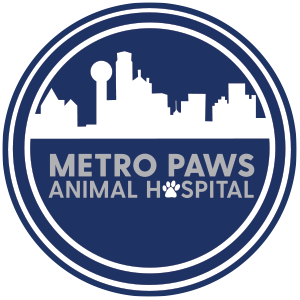FAQ : Preventative Dental Cleaning and Assessment (PDCA)
Q: What are the benefits of a non-anesthetic dental (PDCA)?
A: A PDCA technician performs the following services; an assessment of oral health, cleaning (scaling and curettage), polishing, brushing, oral rinse, and a treatment plan.
Q: Why is oral hygiene important for my pet?
A: Pets are unable to brush their teeth daily. Therefore, it is our responsibility to ensure that they have good oral hygiene in order to avoid dental disease. The formation of plaque on teeth leads to not only calculus or tartar buildup but also gingivitis. If gingivitis is left untreated, it will progress into more advanced periodontal disease.
Periodontal disease is shown to have a relationship with heart disease because bacteria from the mouth constantly enters the bloodstream and adheres to the arteries surrounding the heart. Studies have shown that chronic periodontal disease causes problems in the heart, as well as kidneys, and possibly the liver.
Q: How do you perform your service while the patient is awake?
A: Our service is provided to pets who are not highly fearful or anxious ensuring a positive experience. Each patient is approached and worked with in a calm and reassuring manner. We sit at eye level, hugging them in a comfortable position which allows us to perform our procedure.
Q: How will I know if my pet needs a dental?
A: Examination is the key to diagnosis and helps determine the type of treatment needed. This can be done by the owner regularly at home by looking at your pet’s gums and teeth. Things to look for are; tartar buildup, redness of gums, gum recession, fractured or mobile teeth, foul odor, etc.
When your home exam reveals dental problems or if you are still uncertain, a trip to the veterinarian is in order. A DVM will perform a physical exam and access patient’s oral health and provide a treatment plan. Your pet should have a physical exam at least yearly by a DVM, this is typically done at time of vaccinations.
Q: If my pet needs extractions, will surgery be done today?
A: Surgery for extractions are scheduled at a later date since extractions require the patient to be under anesthesia.
Q: How often does my pet need a dental?
A: The frequency of dentals will depend on various aspects of the patient: age, breed, size, at home dental care, etc. After the PDCA technician has completed their assessment and cleaning, they will provide a time frame for how often your pet will need a PDCA. We offer a complimentary recheck one month after PDCA for a dental assessment.
Q: What can I do at home to prevent dental disease?
A: Preventative dental care should include daily brushing using an enzymatic pet toothpaste and a proper toothbrush. There are also oral rinses that can be used. Most dogs accept brushing if they are approached in a gentle manner. It is ideal to start when they are young, but even older pets will accept the process with some time. Ask a technician for recommendations of what products to use and techniques for brushing teeth.
Q: How can you tell if my pet needs extractions?
A: The PDCA technician will assess patient’s oral health during the cleaning, noting any mobile teeth, fractured teeth, or root exposure. The PDCA technician requests a DVM evaluation if they believe extractions are required. An estimate will be provided if an anesthetic dental is recommended. These assessments are recorded and sent home with the owner at the time of pick up. Radiographs are the best evaluation of oral health, and are obtained during a dental with anesthetic in order to evaluate oral health above and below the gum line.
Q: What type of sedation is used for the non-anesthetic dental?
A: We commonly give Trazodone to patients who are anxious which may result in difficulty performing the dental procedure. Trazodone is only administered with the owner’s consent. Trazodone in dogs has been used in the treatment of anxiety disorders, alone or in combination with other behavioral medications. This drug enhances behavioral calmness and reduces anxiety thereby improving patient welfare with few side effects. A single dose of trazodone produces mild sedation with no observable side effects.
Q: What if Trazodone doesn’t reduce my pet’s anxiety enough for the technician to complete the non-anesthetic?
A: Occasionally, Trazodone is not enough to reduce a patient’s anxiety. If that is the case then we will contact the owner with an update. Depending on the patient’s health, we can administer an additional or alternative medication to reduce anxiety. Additional or alternative sedation is administered when we have consent from the owner and approval from a DVM.
Q: Does my pet need an anesthetic dental if they are already getting the non-anesthetic dental?
A: Yes. Anesthetic dentals are recommended in order to obtain radiographs of teeth so that we can assess possible abnormalities below and above the gum line that we may not be able to see otherwise. Non-anesthetic dentals are utilized to help minimize bacteria buildup through frequent cleaning between regular anesthetic dentals. We recommend that your pet has an anesthetic dental annually, along with non-anesthetic dentals in between as preventative, unless directed otherwise by your DVM.
